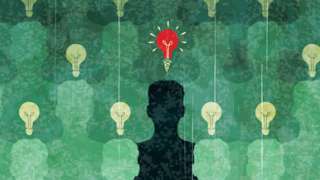MEDIA
Opinion: Your identity is more than your job!
www.telanganatoday.com | May 12, 2022
You must have heard about the mid-life crisis that people experience in their 40s, 50s and 60s, but did you hear about an early-life crisis that young students in their 20s experience? No, there is no such term like ‘early-life crisis’ because according to society, your youth should be filled with energy and you must have it all figured out – as though you wake up on the morning of your graduation and the whole world around you has forgotten that you were a student yesterday!
While you prepare to welcome the next ‘milestone’ of your life because we are engineered to complete the steps of life; starting from 10th Boards, 12th Boards, undergraduation, and now getting a job, you also welcome the unwelcome ‘So, what next beta?’ from your relatives and friends. It is as though all the adults in your life have picked a new hobby of taking interest in your life. Many of you reading this will scoff at it as if it’s just another rant of a Gen Z, but calling it a rant relegates every individual experiencing this immense burden of making a career in their early 20s. For some of us, we may really be grappling with self-blame and self-hatred for not being able to live up to the expectations of society from a 21-year-old, crushing our self-confidence.
Normalising Feeling
While ‘So what do you do?’ is a great icebreaker and life-saver for making small talks, it can also be triggering for many – in the sea of people who are certain about what they want to do, who have a dream to chase, and who are already fitting in with society’s expectations, there is perhaps an ocean of people who don’t. We need to normalise feeling lost at 20 or even at 30 because capitalism has placed so much pressure on the youth to settle down and earn in big numbers. So much so that they are forced to think of how they can glorify themselves in their resumes and make themselves look like a hirable resource and an asset to the world.
Our worth is immediately reduced to numbers and we become a mere resource in the job market. Isn’t this job market similar to a fish market where fishes of different sizes, colours and shapes are on display waiting to be picked by a customer that will validate its worth? This is how capitalism has dehumanised us. It is as though we spent 21 years of our life just preparing to sell and market ourselves to other people who have done the same thing for a little longer.
Finishing graduation after flinging the hats in the air is a sign of freedom, but we end up in the clutches of capitalism. We are made to think of how we can capitalise on everything we do or know. It all appears we need to spend the rest of our lives absorbing capitalism and living by its standards. Even if you are someone who understands the devil’s play that capitalism plays on us, we bet that you too have felt intimidated by the rat race on LinkedIn that everyone is a part of.
Unpaid Internships
Having discussed the job market, it is also important we identify that it has been difficult to find desirable internships/jobs, especially those that pay, and pay well. The opportunities as outlined by Vox (2021) are pressed or incongruent –“they offer bad pay or an unpredictable schedule, or just don’t feel worth it to unemployed workers, many of whom are rethinking their priorities.”
Unpaid internships have been glorified, especially until you graduate. We are taught to slog ourselves for these internships as we get paid with experience; experience that is supposed to beautify your resume. Forbes (2021) also highlights that it’s time to ban these unpaid internship as they bring no good to the organisations. Not everyone can afford to do unpaid internships, it’s an opportunity that only the privileged can take on, accentuating the socioeconomic divide and shutting out students from marginalised backgrounds. This lack of diversity in workplaces is counterproductive as it leads to long-term deficits of much needed talent and perspective.
Vice India (2021) reported some experiences of students who were burnt out while completing their studies amidst the pandemic, and are the same students who have to figure out life after education now – “But today, we’re graduating in a shit economy, with abysmal job opportunities, unable to not just live out the best years of our life but hardly able to cope with the everyday.”
Burnt Out
Society does not acknowledge the shortcomings the youth faced due to the unprecedented circumstances of the pandemic. It is not ready to accept the mental damage that the pandemic has left us with along with the physical one. Today’s youth who are touted as ‘tomorrow’s future’ are exasperated and burnt out; they have not experienced the same circumstances as the adults around them have at their time. Context matters because that is what we are breathing in and out. While one may claim that the Covid crisis has improved, it does not erase the trauma that people have experienced when it was all a wreck – notwithstanding grief from the loss of family, friends, and colleagues. It cannot and does not disappear at once.
Today’s youth – it could be you, your sibling, your child, your relative, your colleague, or your friend – don’t need your sympathy. They need to be understood and empathised with. We are living in a world that is already very cruel to its people. Life should not become a living debate on whether money can buy happiness. People should not succumb to a single identity; an identity of their career. Your career is not your identity, you are more than your job!
By Prof. Moitrayee Das, Faculty of Psychology and FLAME Alumna Mansi Goyal
(Source:- https://telanganatoday.com/opinion-your-identity-is-more-than-your-job )

